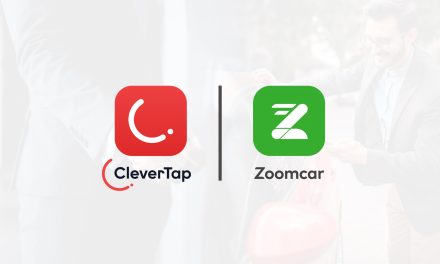It is going to be predominantly omnichannel CRM solutions in the coming years, says Swaminathan S, Executive Director – Group Strategy of R K Swamy-Hansa Group in this interview.
Customers really matter. The simple and straightforward adage acquires a different meaning when every first character is capitalised: CRM. Obviously, it is much more than just relationship management, observes Swaminathan S, Executive Director – Group Strategy of R K Swamy-Hansa Group, as he settles down for a conversation with MartechAsia from his home base in Mumbai.
“Customers need relationships with enterprises across all channels. If a Customer Relationship Management (CRM) tool isn’t supportive of omnichannel platforms, organic relationships don’t get built these days. CRM is all about how various data is efficiently sourced from different channels and amalgamated for enhanced customer support. It is going to be predominantly omnichannel CRM solutions in the coming years,” observes Swaminathan.
He laments that many don’t realise the importance of adopting a CRM solution that seamlessly connects various departmental dots within a company. “They should break their departments down to silos and multiple CRM platforms are needed to bring them together so that all the information is in sync with one another.”
Data-driven marketing
These are times when marketing is getting more data-driven. And data is ubiquitous, to cite Swaminathan: “Digital data from the Web in the form of user behaviour – what consumers browse, click, share; transactional data coming from what consumers have bought or tracking purchase path or journeys across marketing channels; data from social — comments, shares; data from mobile apps; data streams from video views; real time data from customer feedback/experience; data from customer service, et al.”
This enormous trail of data left behind by customers is what marketing must contend with, suggests Swaminathan. “It is unlike anything seen over the last 100 years. Hence, marketing certainly needs to get more analytics-driven and tech-friendly to understand consumers and engage with them to build powerful brands.”
The Indian way
The United States is the most mature market when it concerns data-driven marketing. “India is at a nascent stage, and nowhere as mature as the U.S., but current opportunities and our future potential are immense. While some kind of plumbing is being done in this aspect, we shall reach the sophistication of the U.S. if our discipline of CRM processes is as good as theirs. Especially with millions of small vendors jumping on the digital payments’ bandwagon, like Google Pay, Paytm, et al., we are generating a lot of customer data, which needs proper management,” says Swaminathan, who is also a Co-Founder and former Chief Executive Officer of Hansa Cequity.
He proposes that India should conceptualise and roll out a data stewardship programme to create personnel that are more aware of and add value to the CRM systems and solutions. “Meanwhile, social media tools are gaining traction among Indian enterprises. It should not stop with data gathering from social platforms, but a lot of work needs to be done in harvesting data to add value to the existing CRM solutions. E-commerce players like Amazon have already started doing it to manage their inventory, logistics, etcl., and ultimately make the customer experience better.”
In this regard, social listening should ideally pave the way for social experience, says Swaminathan. He further elucidates that some automotive majors in India are practically implementing real-time roadside assistance by building on social experience.
Next change
Ask him what the future holds for CRM platforms’ continuing evolution in India, and Swaminathan wraps up by saying, Customer Data Platforms (CDP) that help sort and organise unstructured and structured data; insight building through segmenting and identity resolutions; and marketing of these relationships on CRM solutions will be the key trends in the future.



















